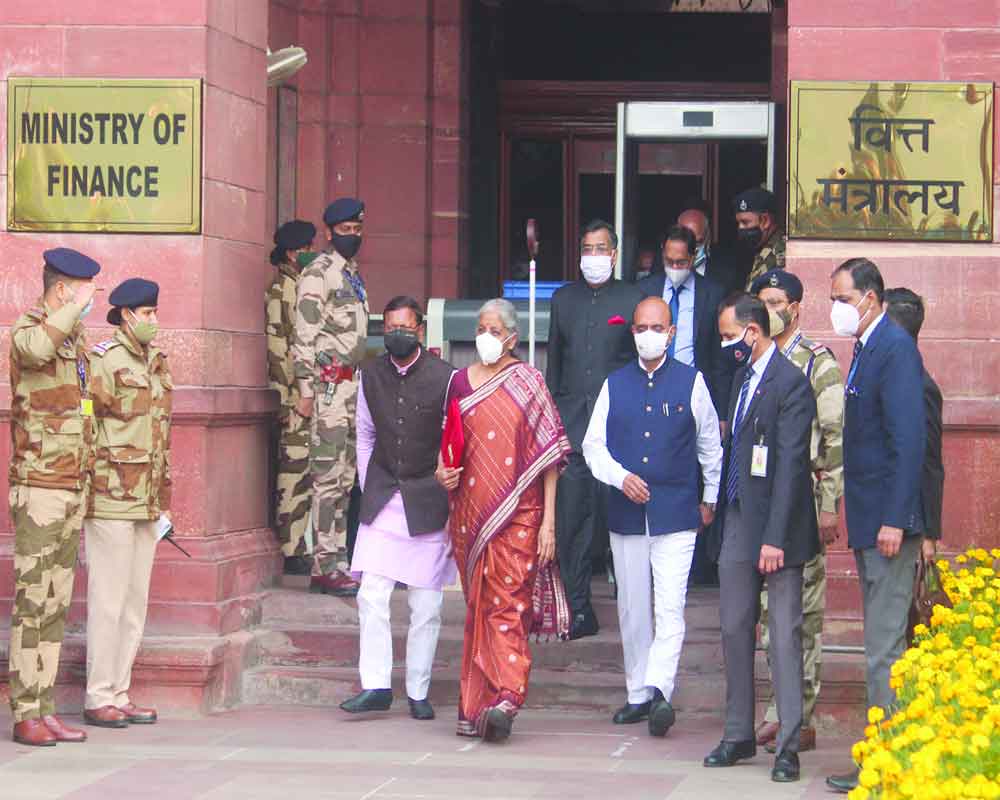There exists a gulf in actual and targeted public health spending. This year the so-called “V” shape recovery, if it is, and an upward RE of the GDP for 2021-22 gave an opportunity to the Government to makeup for previous years’ lapses by spending more on health and nutrition. Like the previous year, the conclusion ends with the question: if such an undesirable global crisis cannot force the Government to prioritise health, what will?
On the same day, February 1, 2021, when the ongoing health crisis was marching toward the peak, Finance Minister Nirmala Sitharaman in her 100 minutes long Budget speech mentioned the word “health” at least 34 times. In the Economic Survey 2020-21, an entire chapter, “Healthcare Takes Centre Stage, finally!” was devoted to health. This chapter was full of figures, though criticised later for superfluous correlation and better performance of outlier States, and it seems like the government accepts the importance of public spending on healthcare on out-of-pocket expenditures (OOPE), poverty, and public health.
In the Budget documents, clubbing the related heads and some finance commission grants, the rhetoric of 137 per cent increase in health expenditure was streamed under the title “Health and Well-Being” budget. A careful analysis showed that it was just 10.16 per cent larger than the 2020-21 Budget Estimate (BE) and 0.34 per cent of the GDP.
This year on February 1, 2022, in her shortest (92 minutes) of four Budget speeches, the word “health” is used only 19 times and the word “digital” is mentioned 36 times which is more than twice of (16 times) 2021.
Unfortunately, the term “digital divide”, a stark reality, is not mentioned even once. Looking at the Budget figures, there is a clear indication that the Government is unlearning from the health crisis. The total budget of the Ministry of Health and Family Welfare (MoHFW) is `86,200.62 crore (Dept of Health `83,000 crore, & Dept of Health Research `3,200.62 crore) which is meagerly `200 crore larger than the revised estimate (RE) for the year 2021-22, and if seen in real terms, the expenditure is decreased.
As a per cent of the GDP, the allocation to MoHFW is 0.33 per cent which is 0.01 percentage points less than the previous year. In 2021-22 Budget, `12,359 crore were allocated to India Covid-19 Emergency Response and Health System Preparedness Package, but allocation was reduced to zero for the current year. With such a snail pace, the target of 2.5 per cent of the GDP spending on health, envisioned in National Health Policy 2017, is becoming difficult, if not impossible. To show an increase in health budget as a share of the GDP, water and sanitation both crucial but not directly connected, are clubbed as expenditure on health.
The Covid-19 exposed the flaws of the market-oriented private health system due to its high unequal access and elite capture. By relying on insurance (actively encouraged by the profit-seeking health industry), the Government is unlearning the basic fact that the insurance market is full of imperfections, adverse selections, and moral hazards. If we do not have a robust public health infrastructure, private insurance schemes are a behavioural experiment to reduce the demand for free and publicly accessible public healthcare.
There exists a gulf in actual and targeted public health spending. This year the so-called “V” shape recovery, if it is, and an upward RE of the GDP for 2021-22 gave an opportunity to the Government to makeup for previous years’ lapses by spending more on health and nutrition. Like the previous year, the conclusion ends with the question: if such an undesirable global crisis cannot force the government to prioritise health, what will?
(Pratap Mohanty, teaches Economics at IIT Roorkee; Mukesh Kumar is a PhD Fellow, Economics, IIT Roorkee)

























